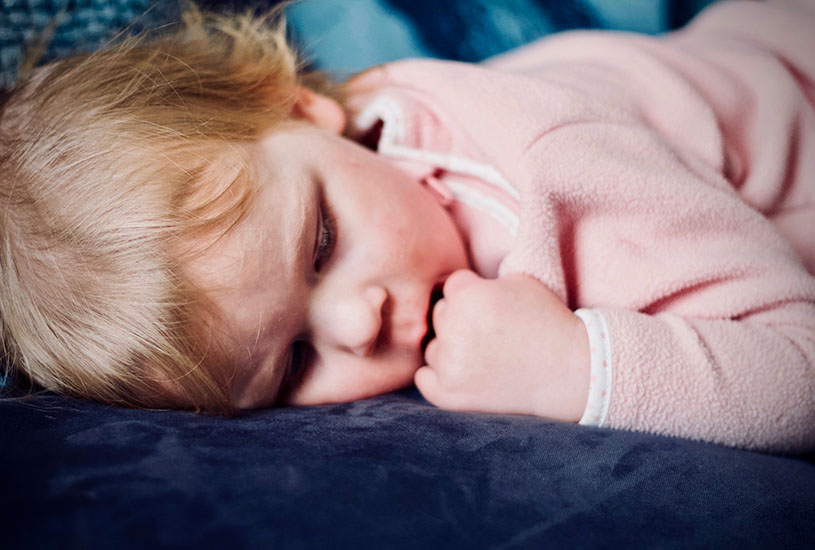A world-first Deakin trial is aiming to address a big issue faced by most children with Autism Spectrum Disorder (ASD) – lack of sleep.
Deakin University’s Dr Emma Sciberras, from the Deakin Child Study Centre in the School of Psychology, said the trial would explore whether improving sleep could bring wide-ranging benefits for children with ASD, including reducing the severity of their symptoms.
Dr Sciberras said sleep problems were very prevalent for those with ASD, with evidence suggesting about 80 per cent of children with ASD will have trouble in this area.
“It’s not known why children with ASD have such high rates of sleep problems. The cause might be biological or environmental. For example, children with ASD may have difficulty picking up the ‘sleep social cues’ – say, seeing a sibling getting ready for bed – vital to establishing healthy sleep-wake cycles,” she said.
“And we know that sleep problems can make things worse when it comes to stress, bad behaviour and focusing at school.”
Dr Sciberras said in her work as a clinical psychologist she saw many children with sleep problems.
“That includes issues like insomnia, where children can’t switch off and fall asleep at night, and behavioural difficulties, where children may come in and out of the bedroom for hours after bedtime before settling down to sleep,” she said.
[testimonial_text]This can result in stress for the whole family and can make children more irritable if they have not had enough sleep the night before. So we believe that if we can improve a child’s sleep this will have flow on benefits to so many other areas.[/testimonial_text]
[testimonial_picture name=”Dr Emma Sciberras” details=”Deakin Child Study Centre”]
 [/testimonial_picture]
[/testimonial_picture]The trial is the second stage of a four year study in collaboration with the Murdoch Children’s Research Institute, funded by the National Health and Medical Research Council.
It will allow the researchers to test under randomised controlled conditions an intervention they have developed to address sleep problems in children with ASD.
During the trial, two groups will be evaluated, with one receiving the intervention and the other receiving regular care.
“This is a very simple intervention delivered across two sessions and then a follow up phone call,” Dr Sciberras said.
“It’s delivered by a psychologist or paediatrician, assessing the problems the child is facing when it comes to sleep and providing tailored strategies for improved sleep based on the family’s goals.”
Lead investigator Professor Nicole Rinehart, Director of the Deakin Child Study Centre, said the study built on similar previous work with children who had Attention Deficit Hyperactivity Disorder (ADHD).
“In that study we found that if we could improve the child’s sleep we could improve their symptoms more broadly,” Professor Rinehart said.
“So we’re hoping to expand that to meet the needs of another group of children.
[testimonial_text]It’s estimated about one in 100 Australians have ASD, so any improvements we can make to this group’s health and wellbeing is significant.[/testimonial_text]
[testimonial_picture name=”Professor Nicole Rinehart” details=”Director of the Deakin Child Study Centre”]
 [/testimonial_picture]
[/testimonial_picture]Researchers are seeking Victorian children aged between five and 12 who have an ASD diagnosis and are experiencing sleep problems to take part in this trial.
To find out more, visit http://www.sleepingsoundasd.com.au/ or call (03) 9246 8937.
Published by Deakin Research on 5 February 2018



